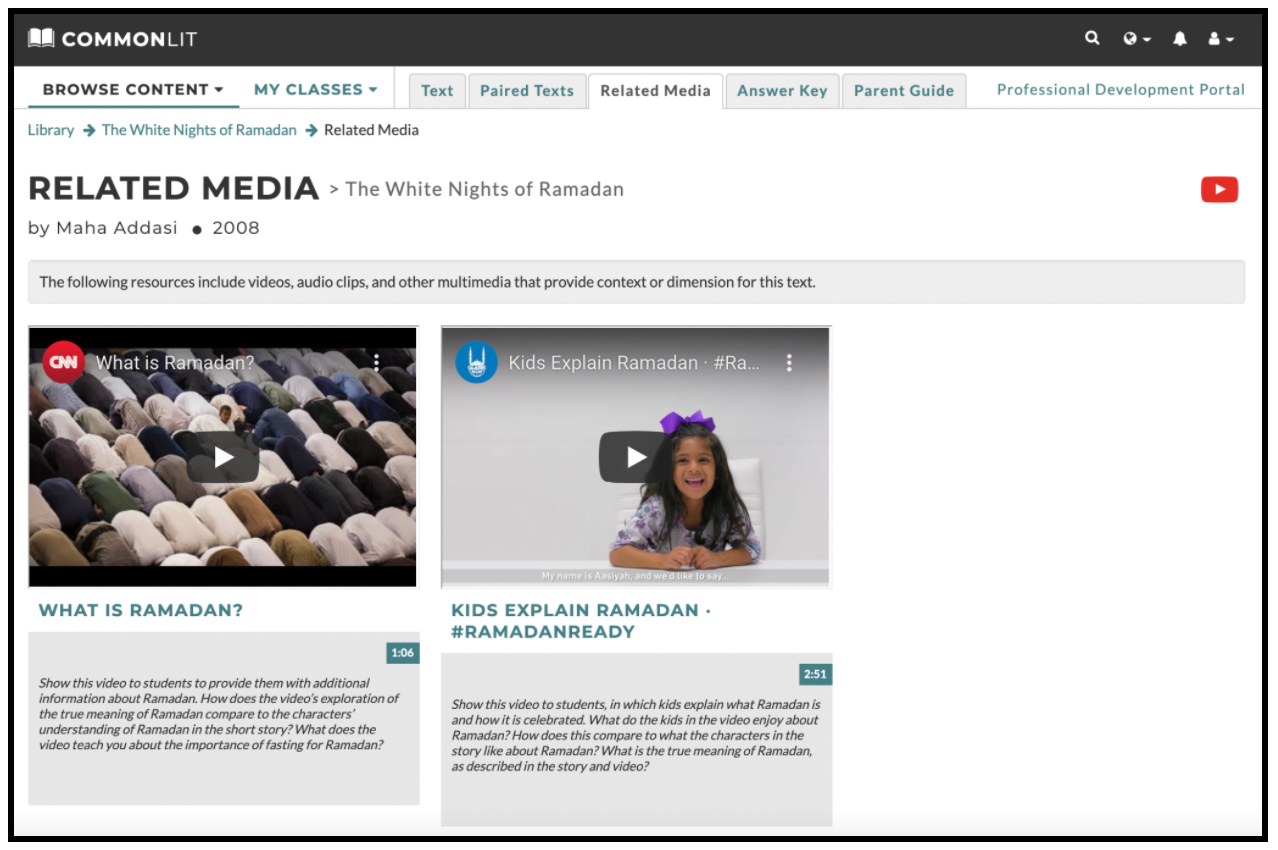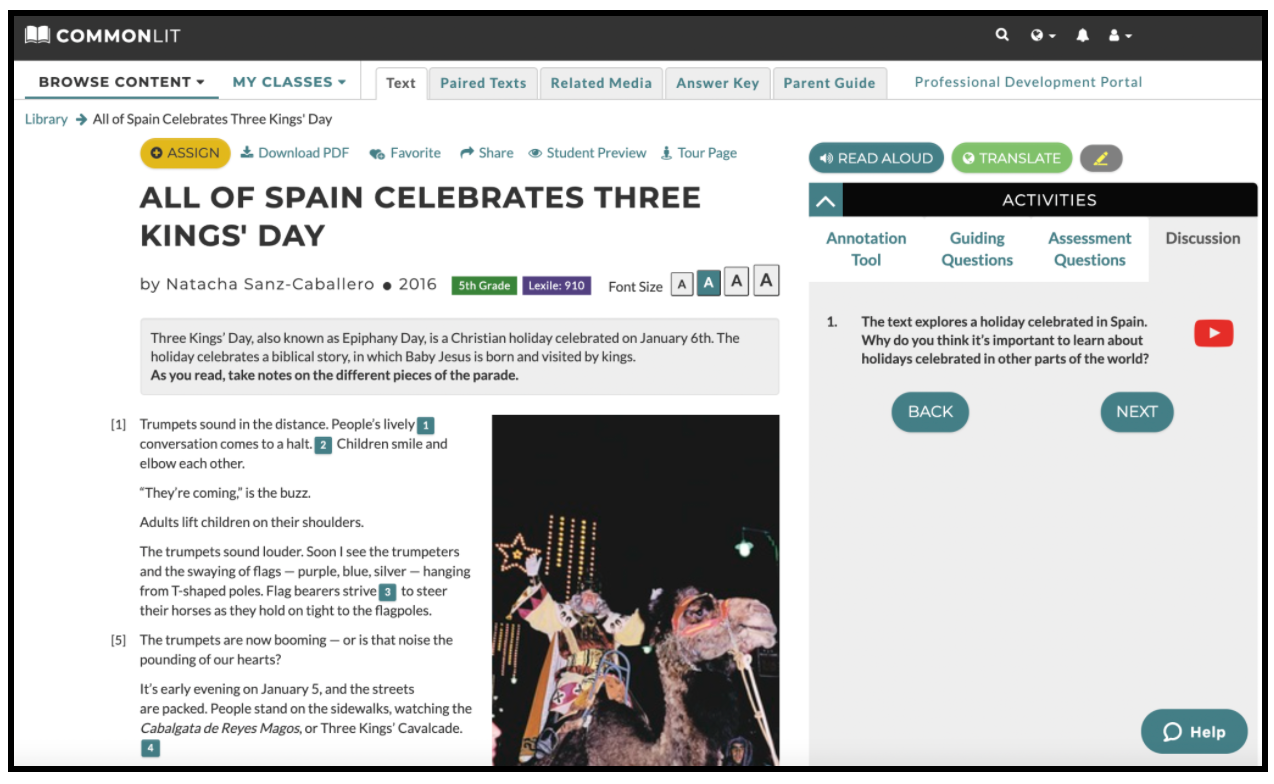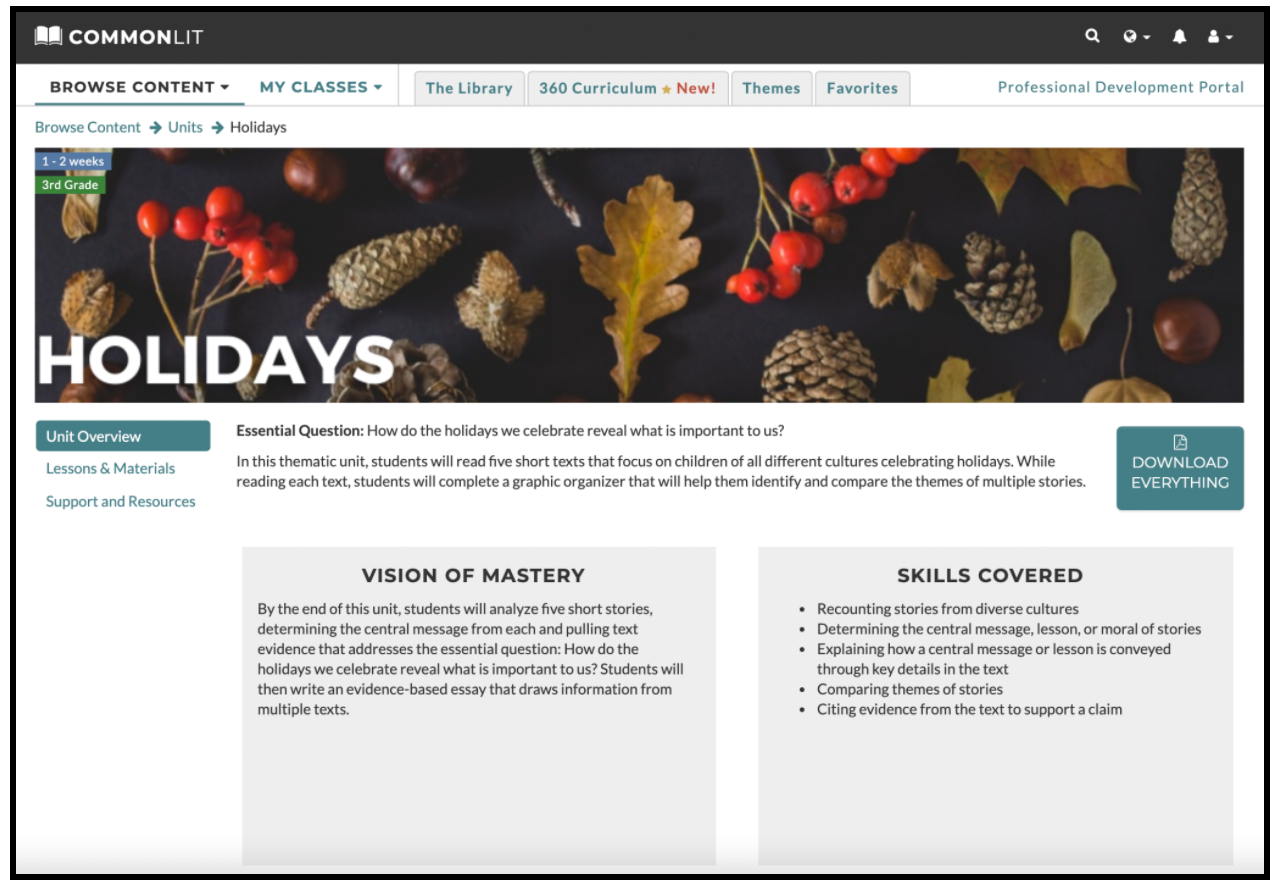 Elementary Classrooms
Heartwarming Lessons About Holidays and Traditions from Around the World
Elementary Classrooms
Heartwarming Lessons About Holidays and Traditions from Around the World
These texts for grades 3–5 teach students about a variety of celebrations around the world.
We know that children love finding reasons to celebrate, whether it’s for a birthday, a big win in a soccer match, or a beloved family tradition. Reading about global holidays and traditions in the classroom is a meaningful way to make learning festive and fun!
Here is a great set of texts for grades 3–5 from CommonLit about holidays. This selection includes short stories and informational texts to get your students thinking about special traditions around the world.
“The White Nights of Ramadan” by Maha Addasi (4th Grade)
In this short story, a Muslim family celebrates the festival of Girgian during the month of Ramadan. Noor learns that the true meaning of Ramadan is about spending time with family and sharing with those less fortunate.
This text is full of interesting facts about how families celebrate Ramadan. To build background knowledge before reading or extend students’ thinking after reading, watch the video “Kids Explain Ramadan” under the Related Media tab. After reading and watching, students could share what the kids in the story and the video enjoy about celebrating Ramadan.

“The Hanukkah Candle” by Samantha Beal (3rd Grade)
In this short story, a young girl, Atara, and her mother are celebrating the Jewish holiday of Hanukkah during World War II. The holiday is bittersweet, as her father is away fighting the Nazis for England. When Atara loses the special shamash candle, her neighbor shares a candle from her Christmas tree and Atara learns that hard times can be easier with help from friends.
After reading, have students make text-to-self connections. Ask Discussion Question 1, “In the story, Atara and her mother are celebrating Hanukkah by lighting the candles of the menorah, giving gifts, and saying blessings. Do you have a favorite holiday? What is it? How do you celebrate?” Encourage students to share important details about their special traditions.
“Art on an Egg” by Mariam C. Orme (5th Grade)
In this informational text, the author discusses a family’s tradition of painting eggs in Ukraine. Viktor and his family hand-decorate Easter eggs, called pysanky, to bring good luck. They paint different designs and symbols with special meanings, then give the eggs away to family and friends or place them around the house.
As students read, ask them to take notes on the different reasons why people decorate eggs. Then, have students use their annotations to answer Assessment Question 5, "What is the relationship between painting eggs and a family's wellbeing in Ukraine?"
“Giving Thanks for Hanukkah” by Debra Hess (5th Grade)
In this informational text, the author explains why Hanukkah celebrations seem to fall on different days each year. Even though the timing of Hanukkah changes each year, the holiday is always an opportunity to celebrate the miracles that helped keep the Jewish people alive.
After reading the text, extend students’ learning by watching the video “What is Hanukkah?” under the Related Media tab. Students can build on their understanding of when people celebrate Hanukkah by learning more about the traditions behind the holiday. After reading and watching, students could discuss why the holiday is important to the Jewish people.
“Pasha’s First Yom Kippur” by Carol Coven Grannick (4th Grade)
In this short story, Pasha prepares to celebrate his first Yom Kippur. His grandfather, Dedushka, explains that Pasha must apologize to those he has wronged and forgive those who apologize to him before the holiday begins. By the end of the story, Pasha learns the value of forgiveness.
As students read, have them follow the annotation task, which asks them to take notes on Pasha’s relationship with his grandpa. The conversations Pasha and Dedushka have reveal the true meaning of Yom Kippur. Students could then use their notes to discuss why it is important for people to ask forgiveness from others before they begin celebrating the holiday.
“All of Spain Celebrates Three Kings’ Day” by Natacha Sanz-Caballero (5th Grade)
In this informational text, the author discusses the traditions of Three Kings’ Day in Spain, where people commemorate the biblical story of the Magi’s visit to newborn Jesus. Cities and towns across the country celebrate with a parade and fancy dinners.
This text provides a great opportunity to get students talking about global cultures and traditions. Ask students the first Discussion Question, “Why do you think it’s important to learn about holidays celebrated in other parts of the world?” Have students share their opinions and make connections between the holidays they’ve learned about.

Thematic Unit: Holidays
Are you interested in learning more about holidays with your students? Check out our supplemental unit, “Holidays.”
In this thematic mini unit, students will read five texts about various holidays, including All Saints’ Day, Holi, and St. Lucia’s Day. Students will answer the essential question, “How do the holidays we celebrate reveal what is important to us?” in an evidence-based writing activity using details from multiple texts. This supplemental unit is a great opportunity for students to engage in an extended study about holiday traditions and make cross-textual connections in writing and through discussion. It is designed for 1–2 weeks of instruction and includes a graphic organizer to help students answer the essential question.

Next Steps
Looking for more elementary texts or text sets on CommonLit? Browse the CommonLit Library!
If you’re interested in learning all about CommonLit’s free digital literacy program, join one of our upcoming webinars!

